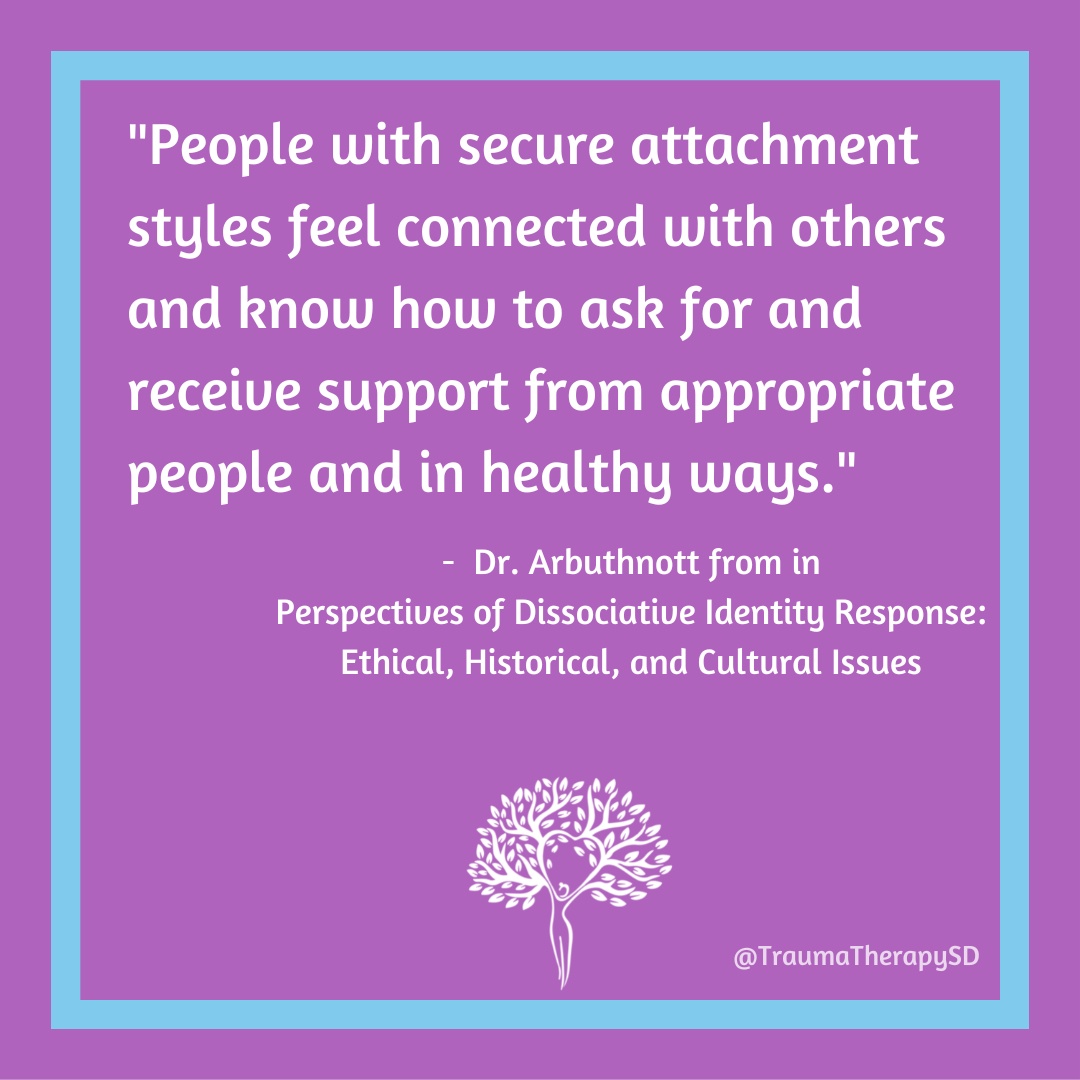Dr. Alexis Arbuthnott Quote

I’m reading Perspectives of Dissociative Identity Response: Ethical, Historical, and Cultural Issues, and came across this quote by Dr. Alexis Arbuthnott:
“People with secure attachment styles feel connected with others and know how to ask for and receive support from appropriate people and in healthy ways.”
I love this quote for so many reasons. First it is simple and easy to understand. It also frames things in a non-judgmental way. So, let’s beak this down.
And as always, these are generalizations, every person is different and no attachment style is set in stone, people can and do change.
People with secure attachment styles feel connected with others. Whereas those with anxious attachment styles rarely feel safely connected to others, they are frequently anxious about their relationship or how their partner feels about them. And those with avoidant attachment styles are not comfortable with too much connection, feeling safer or more comfortable with some distance in the relationship. Can be aloof about how their partner feels about them.
People with secure attachment know how to ask for and receive support. Those with anxious attachment tend to seek support too much and the support offered may not feel enough or last long enough. And those with avoidant attachment styles are unlikely to ask for help and may not want or feel threatened by offers of support.
People with secure attachment seek support from appropriate people. Those with anxious attachment are likely to seek support from those who make them uncertain and are therefore less likely to be willing or able to offer support in the way the person needs. And those with avoidant attachment, again are less likely to seek support from any others.
People with secure attachment seek support in healthy ways. Those with anxious attachment may seek support in ways that feel invasive or at a frequency that others struggle to accommodate. And those with avoidant attachment. And those with avoidant attachment, again are less likely to seek support in any way.










